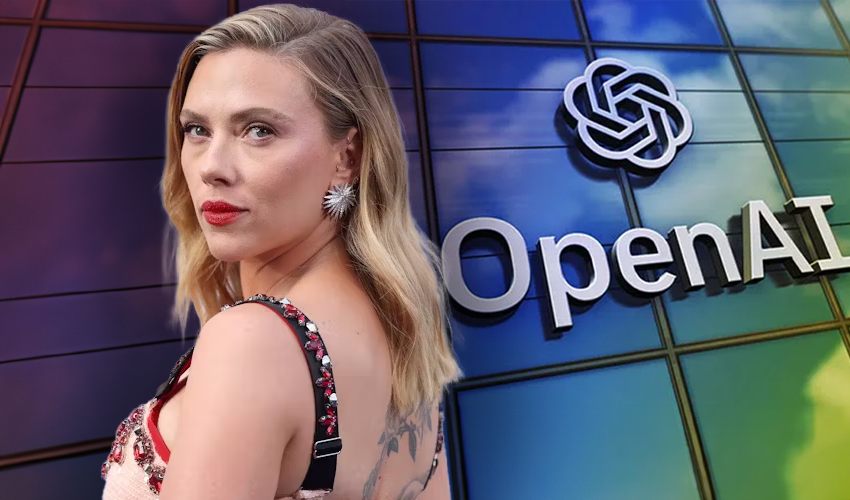In a case of life eerily imitating art Scarlett Johansson is suing OpenAI about the use of her voice as generative AI moves into voice mode.
For those who might remember Scarlett Johansson starred as the voice of an operating system in the movie Her where the main character became so attached to the disembodied voice that he shunned real life to have a relationship with her.
Although the voice mode won’t be available until September or October to advanced users of ChatGPT, a limited number of users were given early access and were surprised when they heard Scarlett Johansson’s dulcet tones.
Johansson alleges that the AI’s voice models, which are designed to replicate various human voices, include an imitation of her own distinctive vocal characteristics. This, she argues, constitutes an infringement of her personal and professional rights.
The voice was called “Sky” but once Scarlett Johansson hinted at filing a lawsuit “Sky” was quickly replaced by “Juniper”.
Researchers at Arizona State University found that Scarlett Johansson’s voice did indeed sound like “Sky,” OpenAI’s currently discontinued GPT-4o voice, according to NPR, which commissioned the comparison.
After using AI models developed to analyse vocal similarities to compare Sky to roughly 600 other actresses, the lab reportedly found Johansson’s voice was “more similar to Sky than 98% of the other actresses.”
Actor Scarlett Johansson said she turned down OpenAI‘s request for her to lend her voice to a conversational ChatGPT system — and that she was “shocked” and “angered” that the company went ahead and used a voice that sounded very similar to hers anyway.
“When I heard the released demo, I was shocked, angered and in disbelief that Mr. Altman would pursue a voice that sounded so eerily similar to mine that my closest friends and news outlets could not tell the difference,” Johansson told Variety. “Mr. Altman even insinuated that the similarity was intentional, tweeting a single word ‘her’ — a reference to the film in which I voiced a chat system, Samantha, who forms an intimate relationship with a human.”
At the heart of Johansson’s lawsuit is the issue of intellectual property. The actress’s legal team argues that her voice, as a unique personal attribute, should be protected under intellectual property laws. They contend that ChatGPT’s voice assist feature unlawfully appropriates her voice characteristics, which could mislead users or unfairly benefit from her established reputation.
Another crucial aspect of the case revolves around the concept of consent. Johansson’s legal team maintains that the actress never granted permission for her voice to be used in any AI model. They assert that, without explicit consent or a licensing agreement, using her voice in this manner is a violation of her rights.
Ethical responsibility
Johansson’s case brings to light the ethical responsibility of AI developers to respect individual rights and seek proper authorization when using personal attributes in their technologies.
Johansson’s case could set a significant precedent for how AI technologies are regulated, particularly concerning voice imitation and the use of personal attributes. Historically, legal battles over intellectual property in the context of emerging technologies have been complex, as courts grapple with balancing innovation and personal rights.
Being able to copy voices and use actors’ likenesses is not new. The use of “Deep Fake” technology can scour thousands of hours of footage to obtain a likeness or voice construct of a person. This has been used in a number of Star Wars TV spinoffs with a de-aged version of Mark Hamill and in the last Indiana Jones film a de-aged version of Harrison Ford was used.
Famously James Earl Jones – the voice of Darth Vader in the Star Wars films – has sold his voice to a company who will be able to replicate his voice in the Ukrain.
More recently the film Alien Romulus used a deceased actor Ian Holm’s digital likeness from the original Alien film.
The unfettered use of AI in the film industry is also the primary reason for the actors strikes last year around how this could be better regulated.
Generative AI’s learning model scours existing sources from the internet when creating written and video material, so the probability of a voice model that sounds like an actor is more possible than you would imagine.
This lawsuit may influence how future cases involving AI and personal likenesses are adjudicated. It raises questions about the extent to which individuals can control and protect their voice and likeness from being used by AI systems. The outcome could lead to more stringent regulations and clearer guidelines for AI developers, ensuring that consent and intellectual property rights are adequately addressed.













